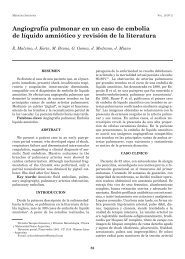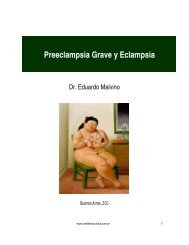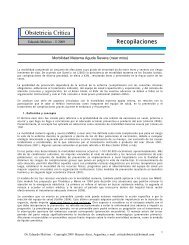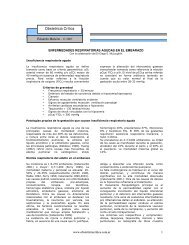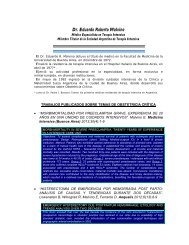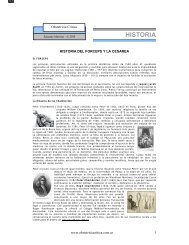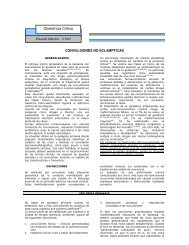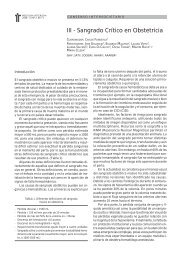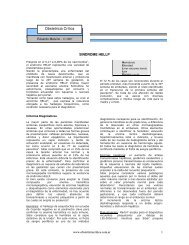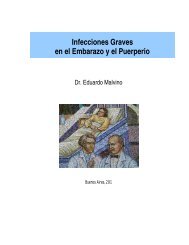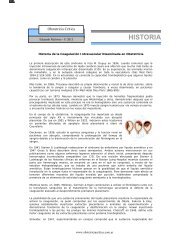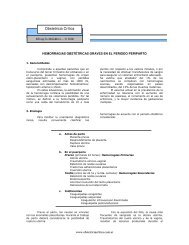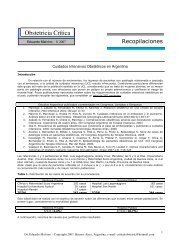New York Presbyterian Hospital, Weill Cornell Medical Center, New York, NewYork 10021, USA. LMN4@Cornell.EduBACKGROUND: This case describes a birth-training device used by a pregnantwoman to stretch the perineum. CASE: A primigravida suffered nearcardiovascular collapse and subsequent acute respiratory distress syndromeafter using the device at home. Her symptoms and clinical course of diseaserevealed a high likelihood of venous air embolism. CONCLUSION: The patientlikely suffered a venous air embolism in association with the use of the birthtrainingdevice. The complications suffered by this patient should give cautionabout use of such devices.Acta Obstet Gynecol Scand. <strong>2008</strong>;87(4):408-12.Impaired maternal cognitive functioning after pregnancies complicated bysevere pre-eclampsia: a pilot case-control study.Brussé I, Duvekot J, Jongerling J, Steegers E, De Koning I.Division of Obstetrics and Prenatal Medicine, Department of Obstetrics andGynecology, Erasmus Medical Center. Rotterdam, TheNetherlands.i.brusse@erasmusmc.nlBACKGROUND: Pre-eclampsia is the most significant cause of neurologicalsymptoms in pregnancy. Neurological symptoms may persist even afterpregnancy. Somatic symptoms of pre-eclampsia, such as hypertension andproteinuria, generally disappear after delivery. However, formerly pre-eclampticwomen more often complain of cognitive disturbances compared to women afteruncomplicated pregnancies. METHODS: Three to eight months postpartum, aneuropsychological test battery was performed in 10 former severely preeclampticwomen (according to the guidelines of the American College<strong>Obstetricia</strong>ns and Gynecologists) and 10 women after uncomplicatednormotensive pregnancies. The control group was matched for age, educationallevel and mode of anesthesia. All women delivered by cesarean section eitherunder general or regional anesthesia. Tests were performed for premorbidintelligence, short- and long-term memory, attention, concentration, executivefunctions, visual and spatial abilities. Anxiety and depression levels weremeasured. RESULTS: The formerly pre-eclamptic women had significantly lowerscores on most indices of the auditory-verbal memory test. Formerly preeclampticpatients learned considerably fewer words than controls and recalledless after interference. Both case and control group did not differ in age, parity orlevel of education. There were no differences in the level of intellectualfunctioning and language tests, such as naming and word fluency. No persistentdifferences were observed in tests for attention/concentration and executivefunctioning. There were no significant differences on depression and anxietyscales. CONCLUSIONS: Maternal memory seems to be impaired afterpregnancies complicated by severe pre-eclampsia. This effect cannot beattributed to depression and/or anxiety or method of anesthesia.Am J Obstet Gynecol. <strong>2008</strong> Mar 28 [Epub ahead of print]Hypertensive disorders of pregnancy and long-term prognosis.
Callaway LK, Lawlor DA, McIntyre HD.Royal Brisbane and Women's Hospital, E Floor, Clinical Sciences Building,Herston, Queensland 4029, Australia.Curr Opin Obstet Gynecol. <strong>2008</strong> Apr;20(2):110-5.What matters in preeclampsia are the associated adverse outcomes: theview from Canada.von Dadelszen P, Magee L.Department of Obstetrics and Gynaecology, Canada Department of Medicine,Canada Department of Healthcare and Epidemiology, Canada Department ofChild and Family Research Institute, University of British Columbia, Vancouver,British Columbia, Canada.Curr Opin Obstet Gynecol. <strong>2008</strong> Apr;20(2):107-9.Hypertensive disorders of pregnancy: future perspectives. A French pointof view.Berkane N, Hertig A, Rondeau E, Uzan S.aUPMC University of Paris, France bDepartment of Gynecology and Obstetricsand Reproductive Medicine, Tenon Hospital, France cDepartment of Nephrology,France dInserm U702, Paris, France.Curr Opin Obstet Gynecol. <strong>2008</strong> Apr;20(2):102-6.Hypertensive disorders of pregnancy: the United States perspective.Sibai BM.University of Cincinnati, Cincinnati, Ohio, USA.Curr Opin Obstet Gynecol. <strong>2008</strong> Apr;20(2):96-101.Hypertensive disorders of pregnancy: a UK-based perspective.Chandiramani M, Shennan A.Kings College London, Division of Reproduction and Endocrinology, London,UK.Curr Opin Obstet Gynecol. <strong>2008</strong> Apr;20(2):91.Editorial summary of symposium on hypertensive disorders of pregnancy.Druzin ML, Charles B, Johnson AL.Department of Obstetrics and Gynecology, Stanford University School ofMedicine, Palo Alto, California, USA.PURPOSE OF REVIEW: Hypertensive disorders of pregnancy, particularly thepreeclampsia/eclampsia syndrome, remain the leading causes of worldwidepregnancy-related maternal and neonatal mortality and morbidity. This group ofconditions are a 'riddle wrapped in a mystery inside an enigma' to quote WinstonChurchill. We are fortunate to have contributions from leading clinical expertswho have devoted many years of their professional careers attempting to solvethis conundrum. RECENT FINDINGS: Dr Jack Moodley has provided us with aperspective on clinical management in underresourced countries. Referral toexperts, aggressive treatment of hypertension and use of magnesium sulfate
- Page 1 and 2: Obstetricia CríticaEduardo Malvino
- Page 3 and 4: gestational age at delivery, Apgar
- Page 5 and 6: Maternal risk factors associated wi
- Page 7 and 8: exclusive categories: 1) bleeding r
- Page 9 and 10: Division of Obstetrics and Gynecolo
- Page 11 and 12: as uncommon as primary synovial sar
- Page 13 and 14: Cardiac Troponin I Elevation After
- Page 15 and 16: significant increase in carbohydrat
- Page 17 and 18: of one per 1500 pregnant women. Cal
- Page 19 and 20: Background: To investigate the rela
- Page 21 and 22: PowerLab hardware unit and Chart v3
- Page 23 and 24: Prophylactic antibiotics for the pr
- Page 25 and 26: years old (n = 23,921). Univariate
- Page 27 and 28: five women uses FDA C, D and X drug
- Page 29 and 30: and complicated. CONCLUSION: Irresp
- Page 31 and 32: clinically effective. Nevertheless,
- Page 33 and 34: Obstetrics and Gynecology Departmen
- Page 35 and 36: Pregnancy-induced severe gestationa
- Page 37 and 38: penicillin or ampicillin, whereas 3
- Page 39 and 40: Abetalipoproteinemia complicating t
- Page 41: case of acute abdominal pain, abdom
- Page 45 and 46: ketoacidosis during induction of la
- Page 47 and 48: and low platelets (HELLP) syndrome.
- Page 49 and 50: Division of Reproduction and Endocr
- Page 51 and 52: simulation center, and to teamwork
- Page 53 and 54: significantly associated with psori
- Page 55 and 56: episiotomy and prophylactic oxytoci
- Page 57 and 58: ecent obesity epidemic has had a pr
- Page 59 and 60: guidelines in 2002. However, the di
- Page 61 and 62: need for intensive neonatal care, h
- Page 63 and 64: mEq/l) metabolic acidosis. Other et
- Page 65 and 66: Acta Obstet Gynecol Scand. 2008;87(
- Page 67 and 68: etrospective review of pregnancies
- Page 69 and 70: Maternal obesity and pregnancy comp
- Page 71 and 72: interval 3.78-5.30) and severe obst
- Page 73 and 74: of GDM. Methods: 1,662 pregnant wom
- Page 75 and 76: Registers. POPULATION: All pregnant
- Page 77 and 78: J Reprod Med. 2008 May;53(5):365-8.
- Page 79 and 80: egarding cervical cancer screening
- Page 81 and 82: College of Surgeons in Ireland, Dub
- Page 83 and 84: maternal morbidity has increased bo
- Page 85 and 86: increased uterine activity was rela
- Page 87 and 88: options.Journal of Perinatology adv
- Page 89 and 90: atio, 1.73; 95% CI, 1.11-2.69). Thi
- Page 91 and 92: discharge at site of perineal repai
- Page 93 and 94:
Thirty-one other patients refused t
- Page 95 and 96:
Department of Obstetrics and Centre
- Page 97 and 98:
developed any new problems. CONCLUS
- Page 99 and 100:
It seems to be safe to continue bre
- Page 101 and 102:
colonization in a subsequent pregna
- Page 103 and 104:
Crude and adjusted odds ratios were
- Page 105 and 106:
the subsequent development of ESRD.
- Page 107 and 108:
Acta Obstet Gynecol Scand. 2008 Sep
- Page 109 and 110:
OBJECTIVE: To investigate pregnancy
- Page 111 and 112:
OBJECTIVE: To compare the perinatal
- Page 113 and 114:
exceptionally rare. CASE: A 23-year
- Page 115 and 116:
CONCLUSION: This case demonstrates
- Page 117 and 118:
peripartum hysterectomy included ce
- Page 119 and 120:
BMJ. 2008 Sep 8;337:a1397. doi: 10.
- Page 121 and 122:
Lancet. 2008 Sep 17. [Epub ahead of
- Page 123 and 124:
Obstet Gynecol. 2008 Oct;112(4):951
- Page 125 and 126:
Additionally, the effects of distur
- Page 127 and 128:
analyzed. Initial echocardiographic
- Page 129 and 130:
pathologic or anatomically anomalou
- Page 131 and 132:
Eur J Obstet Gynecol Reprod Biol. 2
- Page 133 and 134:
chorioamnionitis; and (3) in contra
- Page 135 and 136:
underlying conditions related to st
- Page 137 and 138:
third trimester of pregnancy.BMJ. 2
- Page 139 and 140:
Texas Health Science Center, Housto
- Page 141 and 142:
preterm birth before 34 weeks (P
- Page 143 and 144:
cases. Most patients (91%) received
- Page 145 and 146:
Ultrasound Obstet Gynecol. 2008 Nov
- Page 147 and 148:
Maggard MA, Yermilov I, Li Z, Magli
- Page 149 and 150:
Clinical and Population Health, Per
- Page 151:
the biologic mechanism is unclear,



